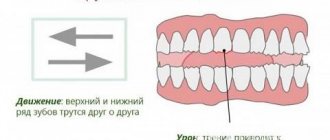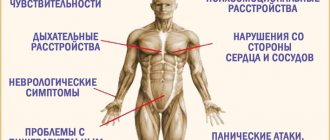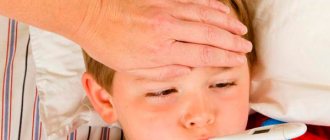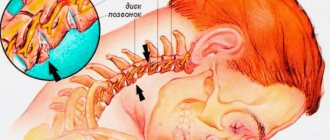Throws you out of sleep - what's behind it?
Sleep is a vital basis for rest, especially for people with neuroses, phobias, vegetative-vascular dystonia and other central nervous system disorders.
In the sleeping state, the vegetative system is being repaired, the energy reserves of the entire body are restored, so that the next day begins fruitfully and vigorously. Unfortunately, a person does not always manage to get quality sleep.
And those who need deep dreams in the first place suffer precisely from the fact that they are not able to get them.
Sometimes, having all the opportunities for a good night's rest (quiet neighbors, the desire to go to bed on time, lack of insomnia, etc.), a person nevertheless suffers a fiasco. He is simply thrown out of sleep as soon as the first phase begins.
This is more than offensive, especially if a person allocates a sufficient amount of time for night rest. It’s impossible to get a good night’s sleep. It’s as if the brain suddenly suddenly changes its decision in favor of being awake and wakes up the owner.
Why does this happen?
The reasons are inside!
Why did you suddenly start being thrown out right on the threshold of the sleepy kingdom? Obviously, something prevents the brain from adjusting to sleep and taking it “for granted.” The causes of this condition lie not in the organs, but in the psyche.
| Panic attacks or their subconscious anticipation, fear of insomnia | Many alarmists become fixated on their most unpleasant symptoms, beginning to subconsciously wait for their recurrence. This often happens before falling asleep. Frightened by the first panic attack that came at night, the patient begins to wait for her inevitable return. Naturally, fears come true - the body reacts properly: pressure rises, pulse jumps, sweat appears. It is for this reason that a person is thrown out of sleep with VSD or hypochondria. |
| Extrasystoles, respiratory failures | Our brain protects us even in our sleep, ensuring the stable functioning of our internal organs. If some kind of failure occurs, the brain immediately reacts and takes action. But sometimes the vegetative system is unable to instantly restore the impaired function: proper heartbeat, breathing. As soon as extrasystoles begin in a dream, provoking respiratory failures, the brain believes that its owner is in danger and, perhaps, is dying from some surrounding circumstances, so it abruptly wakes him up. |
| Lack of sleep, stress, central nervous system disorders | When a person’s nerves are weakened, there is some discord between the body and the brain, which leads to a sharp awakening at the moment of falling asleep. The brain is already completely ready for the start of dreams, but the body is still calming down, trying to lie down more comfortably, feel the work of each organ - is everything okay? As a result, the body does not calm down and begins to wake up the brain, letting it know that it is not time to sleep yet. And the man jumps up in horror, breaking out of his incipient visions. In such cases, it is necessary to first relax the body with a warm bath or herbal tea. If you drink coffee or strong tea less than two hours before bedtime, the same effect can occur - the body will not keep up with the brain, and you will not be able to fall asleep. |
| Neuroses and fears repressed into the subconscious | Many people are familiar with the “horror story” from childhood: don’t sleep on your left side, it’s hard for your heart to beat. In fact, our hearts don’t care at all what position we sleep in. In a lying position, it receives additional stress in any case, which is why many core patients are recommended to sleep half-sitting. Lying on his left side, a person is subconsciously afraid that his heart muscle is starting to work incorrectly. As a result, the brain “prepares” for emergency measures, i.e. he is determined that the owner will face some kind of test. It is the beginning of sleep that is ultimately perceived by the brain as danger, a departure to another world. Therefore, when a frightened person falls asleep, he is thrown out of sleep. The same is true with fear of death and cardioneurosis. As soon as the heart begins to beat slower (a natural decrease in pulse), the panicker’s brain immediately begins to desperately save him from imaginary death by waking up. |
Treatment
Some unlucky dreamers turn to sleeping pills in desperation, and this life-saving remedy has two sides. Firstly, such medications really help some people. During forced sleep, the nervous system and psyche are “distracted” from their fears and anxieties, as if learning to re-perform their natural task: sleep.
But on the other hand, 1-2 weeks of treatment is not always enough to restore your sleep reserves. It may turn out that a person will only “addict” himself to sleeping pills, and in the future will no longer be able to do without them. And internal problems will continue to progress, aggravating the condition.
That is why, in case of nervous disorders, it is so important to contact a psychotherapist in time and remove problems from the soul. Then Morpheus will be more hospitable.
Source: https://distonija.com/vyibrasyivaet-iz-sna.html
How to improve your condition
To reduce the number of pathological manifestations of VSD, you must do the following:
- try to avoid stressful situations;
- avoid physical overexertion;
- give up bad habits (smoking, drinking alcohol);
- increase physical activity, giving preference to light exercise in the form of long walks and swimming;
- Make sure that you sleep at least 6 hours at night.
It is important to adjust your diet by increasing your consumption of vegetables and fruits. It is necessary to reduce the amount of fatty, salty and spicy foods. Herbs that have a calming and mild sedative effect - mint, motherwort, valerian, lemon balm - will help reduce feelings of anxiety.
If compliance with all these rules does not bring a positive effect and the number of arrhythmia attacks does not decrease, you need to consult a doctor.
Reasons for stopping breathing when falling asleep
Healthy sleep helps a person to restore strength; it is necessary to maintain the vitality of the body. However, disturbances in night rest often occur, one of which is stopping breathing when falling asleep.
This is a serious problem that can cause great fear and panic. Various diseases and psychological disorders can lead to its appearance.
It is important to identify the cause of the disorder in time and eliminate it in order to avoid complications.
Signs of respiratory system failure
Disturbances in the functioning of the respiratory apparatus, central nervous system and other organs can lead to breathing stopping when falling asleep. In this case, the person experiences very unpleasant sensations. In some cases, patients simply cannot sleep after an attack because they are afraid of dying from suffocation. You can talk about the appearance of this problem if there are the following signs:
- feeling of a lump in the throat, impossible to swallow;
- compression of the ligaments, the ability to pronounce words disappears;
- slow heartbeat or increased heart rate;
- clouding of consciousness;
- nausea and dizziness;
- numbness of the limbs, tingling in them;
- blue discoloration of the skin;
- chills and sweating, abruptly replacing each other;
- panic fear, feeling of anxiety.
When a person has not yet fallen into deep sleep, he may understand that an attack of asphyxia will soon occur. This is evidenced by a sharp increase in heart rate, the veins in the neck and temples swell, breathing becomes deep and fast, growing excitement occurs, thoughts are confused, and consciousness gradually becomes clouded.
When the first symptoms appear, you should get out of bed, take a sitting position and be sure to call for help.
Main causes of suffocation
Various diseases and disorders can cause respiratory center disorders. However, there are two factors that are the most common causes of choking while falling asleep. These are obstructive sleep apnea and hyperventilation syndrome (HVS). Let's look at them in more detail to understand what processes in the body trigger a failure in the supply of oxygen.
Obstructive sleep apnea syndrome (OSA)
Obstructive sleep apnea occurs when the airway muscles relax too much and the space between them becomes critically narrow or closes altogether.
Various factors can lead to this disease:
- alcohol abuse and smoking;
- overweight;
- physiological features of the structure of the respiratory tract;
- deviated nasal septum;
- menopause in women;
- advanced age;
- diabetes;
- frequent use of sedatives and sleeping pills.
OSA manifests itself mainly at night, when muscles involuntarily lose their tone, but it can also disturb during periods of shallow sleep. Holding your breath lasts from a few seconds to 3 minutes or more.
When there is very little oxygen in the blood, the brain turns on a protective reaction - awakening. After the respiratory function has been restored, instability is observed for some time, inhalations and exhalations are chaotic and uneven.
Apnea must be treated with medications, hardware therapy or surgery; if the problem is left to chance, it can result in death from asphyxia.
Hyperventilation syndrome (HVS)
Hyperventilation syndrome is the most common form of vegetative-vascular dystonia (VSD). Most often, HVS develops against the background of a panic attack or anxiety disorder.
The appearance of suffocation is closely related to psychological problems, since breathing is the only body function that is controlled by both the somatic and autonomic nervous systems.
Failures are accompanied by the following additional symptoms:
- chills and sweating;
- chest pain;
- nausea and dizziness;
- rejection of the reality of the surrounding world;
- fear of dying;
- fear of going crazy;
- sudden changes in sensations of hot and cold.
The causes and treatment of HVS can only be determined by a psychiatrist. It is typical that patients suffering from the disorder do not experience any deviations in physical health from the norm. Their attacks of suffocation most often occur against the background of severe stress, but over time they can occur without obvious help.
To cope with breathing problems, panic attacks and causeless anxiety, you need to do serious work on yourself, and it will be difficult to do without a specialist.
Other reasons
There are a number of pathologies that can also cause sudden disruption of respiratory function while falling asleep. All diseases are quite life-threatening, so it is important to diagnose them in time and begin treatment. You also need to know how to provide first aid to a patient to avoid asphyxia.
Let's take a closer look at what ailments lead to suffocation, and what to do if this problem takes you by surprise:
| Violation | Mechanism of development of suffocation | First aid |
| Bronchial asthma | Choking occurs due to swelling of the respiratory tract and impaired gas exchange; it is caused by contact with allergens. | We seat the patient, provide a flow of fresh air, put a heating pad at his feet, and give Eufillin. |
| Allergic swelling of the larynx | If you have a personal intolerance to specific substances (allergens), severe swelling of the larynx may develop, in which the respiratory lumen closes completely and suffocation occurs. | We lift the patient out of bed, sit him down, give a solution of calcium chloride or any antihistamine (Diazolin, Diphenhydramine, etc.). |
| Heart failure | If the function of pumping blood by the heart muscle is impaired, a person in a supine position may experience congestion in the lungs, which leads to respiratory arrest. | We force the patient to take a vertical position, you can sit him on the bed and put pillows under his back, give Validol or Nitroglycerin, make a hot bath for the feet or put mustard plasters on the calves so that the blood drains from the upper part of the body to the lower. |
| Diphtheria | The disease can cause blockage of the airways with a fibrous film, which leads to suffocation. | We sit the patient comfortably on the bed, make a warming bath for the legs, which will ensure a rush of blood into the lower part of the body from the upper part. |
| Inflammatory infectious diseases (pharyngitis, laryngitis, etc.) | Such pathologies most often lead to suffocation in children, since they have very narrow respiratory passages. Swelling and inflammation of the mucous membranes can limit breathing and cause an attack of asphyxia. | We lift the patient out of bed, sit him down, calm him down, this should help, since in an upright position it is much easier for the respiratory muscles to work. |
| Sleep paralysis | The disorder manifests itself at the moment when the brain does not give a signal to the body to act, while the person does not sleep, but cannot talk or move; sometimes even hallucinations can develop against the background of such a disorder. | The patient needs to be completely awakened; light taps on the face will help bring him out of the state of paralysis; you can also sprinkle him with water, after which the person needs to be reassured and explained that everything is fine with him. |
Temporary stops during the period of falling asleep should not be ignored under any circumstances. Choking may indicate serious malfunctions in the functioning of the heart muscle, respiratory and nervous systems. Only a doctor can find out exactly what is the cause of this condition. However, keep in mind that you may need to consult several specialists at once. Diagnosis and choice of treatment.
Somnologists conduct an in-depth and comprehensive study of sleep problems; an otolaryngologist, dentist, immunologist, allergist and psychiatrist can also help.
To determine what led to asphyxia, you need to carry out a number of diagnostic procedures:
- collection of anamnesis from the patient’s words, his detailed examination;
- laboratory tests of stool, urine, blood and sputum from the lungs;
- allergy tests;
- X-ray of the lungs;
- computed tomography of the lungs and bronchi;
- bronchoscopy;
- thoracoscopy;
- electrocardiogram;
- polymonography.
After all the studies have been carried out, the attending physician makes a diagnosis. The patient may be prescribed drug therapy for heart pathologies, inflammatory processes and allergic reactions. To eliminate apnea, hardware therapy can be used, the essence of which is the regular supply of air during sleep.
HVS is eliminated through regular visits to a psychiatrist, auto-training, and sometimes medications are prescribed to relieve excessive excitability of the nervous system.
Danger of violation
If you do not treat respiratory arrest in a timely manner, you can get serious complications from this condition. In addition to the fact that the diseases that caused the disorder will develop rapidly, other pathologies may also develop.
Without receiving timely qualified assistance, the patient faces the following problems:
- sleep disturbance;
- decreased ability to work during the day;
- development of oxygen starvation of the brain;
- decreased concentration;
- apathy, depression;
- death from suffocation.
Drawing conclusions
If you stop breathing when falling asleep, you should immediately undergo a full examination. This disorder does not appear on its own; it is provoked by various physical and psychological disorders.
Many diseases that cause asphyxia are deadly, so it is important to detect and eliminate them in time. This disorder must be treated very responsibly, it will help preserve health and even life.
Dasha Pashchenko
Source: https://sladson.ru/zdorove/razlichnye-narusheniya/ostanavlivaetsya-dyhanie-pri-zasypanii.html
Chest discomfort
Experts from the authoritative medical resource WebMD call this the most common sign of heart problems.
It is impossible to clearly describe the feeling. Some feel slight pain, some feel pressure or tightness, others complain of a burning or tingling sensation... In any case, if you occasionally feel something unusual in your chest, you need to contact your doctor as soon as possible and get a referral for an electrocardiogram and ultrasound of the heart.
This is how diseases of the vessels supplying our main organ with blood, or a developing heart attack, make themselves known.
The good news is that 80-90% of chest pain is not related to the heart. But to make sure of this, it is better to visit a doctor as soon as possible.
Is the condition that causes a feeling of cardiac arrest dangerous?
The heart is a pump that has to pump blood through its vessels throughout life. It doesn't stop for a second. But there are situations when the heart stops for a moment, and then begins to beat with redoubled force, as if compensating for an unintended stop. To understand how dangerous this condition is, it is necessary to determine what causes can cause cardiac arrest - extrasystole.
Breathing stops when falling asleep
Thanks to proper sleep, people restore their strength that was spent throughout the day and “reboot” for new actions. Sleep is an excellent cure for any disease.
But sometimes during a night's rest, things that frighten a person happen: breathing stops when falling asleep. The feeling of helplessness, spasms in the throat and neck leave unpleasant memories and fear of the next night, when the attack of suffocation may recur.
The prerequisites for this condition are different; you should have an idea about them in order to be able to prevent a dangerous syndrome.
The mechanism of falling asleep: what happens in the body
It may only seem that sleep is accompanied by complete passivity and inaction. In fact, while a person is sleeping, his brain is not asleep. It analyzes the accumulated information. Although 1/3 of the blood that supplies the brain during wakefulness restores muscle tissue during sleep.
In the first minutes of a person falling into sleep, any reaction to stimuli stops. A question asked to him at this time will most likely not be answered. In order to wake up a sleeping person, a raised voice is required. Touching a person and turning on the light does not always help with this. This happens because during the sleep phase, hearing, vision and touch are turned off.
It is important to know! When a person falls asleep, motor activity decreases and muscles relax. Slow and shallow breathing is observed. Accordingly, the heart rate decreases.
During deep sleep, the brain sends commands to the spinal cord to stop the activity of neurons, the body becomes motionless.
Stopping breathing during the sleep phase
Stopping breathing when falling asleep is a serious problem; treatment of such a syndrome should not be delayed. A person who has gone through this at least once experiences real stress and panics. But sleep is intended to completely restore both the physical and mental strength of the body.
Provoking factors
Failure in the functioning of the respiratory center at the time when a person begins to fall asleep can occur as a result of various disorders and diseases. One of the main causes of this problem is the lack of oxygen in the blood and the high content of carbon dioxide in it.
The breathing process may stop in people suffering from obstructive sleep apnea and hyperventilation syndrome. In order to help a person in this situation, you need to understand exactly why breathing fails when falling asleep.
Stopping the supply of oxygen to the body can be caused by the following factors:
- bad habits, such as alcohol and nicotine addiction;
- overweight;
- individual physiological characteristics in the structure of the respiratory tract;
- deviated nasal septum;
- period of menopause in women;
- elderly age;
- diabetes;
- frequent use of sedatives and sleeping pills.
The cessation of breathing when falling asleep mainly occurs at night, when muscle tone weakens. But this can also happen during the day, during shallow sleep.
Stopping the oxygen supply lasts from a few seconds to 4 or more minutes. An insufficient amount of this vital element in the brain leads to a defensive reaction, and the person wakes up.
His breathing rhythm after this is chaotic and uneven for some time.
Attention! Such a problem should not be left to chance; it is necessary to quickly determine the cause and proper treatment. Delay is fraught with asphyxia and death.
Another reason for stopping breathing when falling asleep is hyperventilation syndrome, which appears as a result of panic attacks and anxiety disorders.
Choking occurs due to psychological abnormalities in people who do not have any complaints about physical health. In such cases, it is difficult to cope with the problem on your own. Consultation with a psychologist, psychiatrist and specially selected therapy are required.
Only serious work on oneself, together with competent actions of specialists, helps to get rid of such disorders.
The following ailments can also lead to suffocation in a dream:
- bronchial asthma;
- allergic swelling of the larynx;
- heart failure;
- neurosis;
- diphtheria;
- inflammatory infectious diseases of the throat;
- sleep paralysis
Symptoms
A person who wakes up from suffocation becomes so scared and uncomfortable that he is not able to fall asleep for a long time. The fear of a second attack, the fear of death in a dream, constantly haunts such people. Among the symptoms of respiratory arrest before falling asleep, it is worth noting the following:
- There is a feeling of tightness in the neck, difficulty speaking.
- There is a feeling of a lump in the throat, problems appear when swallowing, and it is difficult to take at least one breath.
- Noticeable changes in heart rate occur. It may become more frequent or, conversely, slow down.
- Nausea with dizziness appears.
- The limbs tingle and sometimes become partially numb.
- Consciousness is distorted, perception changes.
- The skin becomes bluish.
- Chills give way to excessive sweating.
- Fear, anxiety, panic appears.
Complications
If you do not pay attention to these violations and do not take timely measures, complications of varying severity may occur. The diseases that caused this problem will begin to develop more rapidly. Other pathologies will join them.
The lack of timely qualified assistance and necessary treatment is fraught with the following consequences:
- sleep is disturbed;
- performance decreases;
- oxygen starvation of the brain develops;
- concentration decreases;
- apathy and depression appear;
- death occurs from suffocation.
Identifying the cause of the violation
A person who stops breathing while falling asleep should immediately seek medical help and undergo the necessary examination. It should be understood that such a violation does not occur on its own.
Its appearance is provoked by various physiological and psychological factors that must be identified and eliminated. And the sooner this becomes clear, the better for the patient.
After all, many diseases that cause respiratory arrest when falling asleep are dangerous.
Attention! Taking this problem seriously not only improves health, but sometimes saves lives.
To determine the true cause of the disorder, a person must be prepared to undergo a large number of diagnostic procedures. The main ones are:
- ECG;
- radiography;
- Tomography;
- blood test for allergens.
Emergency measures for choking
If you are suffocating, you must immediately call an ambulance. The victim should not feel the excitement of the people who are near him. Their actions should be calm and clear. There are many causes of suffocation. Each of these situations requires a specific technique:
- If an attack occurs in a person suffering from bronchial or cardiac asthma, he must be seated and provided with fresh air. You need to take a warm bath for your feet or put them on a heating pad. The first assistant in such cases is “Eufillin” and a subcutaneous injection of “Adrenaline”.
- Choking, which occurs as a result of allergic swelling of the larynx, can be relieved with the help of antihistamines Diphenhydramine, Suprastin, Tavegil. In severe cases, Prednisolone is administered intramuscularly.
- If the tongue sinks during an attack, the victim must be placed on his back and his head turned to the side.
- The unconscious state of a person and the absence of a pulse require urgent cardiac massage and artificial respiration.
Preventive recommendations
People suffering from this problem should understand that it is difficult to cope with it alone. The issue of treatment is decided with the participation of specialists in the field of neurology. More advanced situations require psychiatric and sometimes surgical intervention.
Advice! There is a special breathing technique for falling asleep quickly. In some cases, it saves the situation. In combination with other treatment methods, a person gets the opportunity to sleep peacefully and fall asleep without fear.
People at risk of developing sleep suffocation should take certain preventive measures:
- regularly carry out wet cleaning of the home;
- remove from the bedroom all objects that collect dust;
- in order to breathe fresh air, the room must be regularly ventilated;
- it is important to take care of a balanced diet;
- you should take care of a healthy lifestyle;
- it is necessary to give up bad habits;
- It is necessary to treat serious pathologies, if any, and not stop taking the medications prescribed by the doctor on your own.
Conclusion
In some situations, a man, woman, and even a child is at risk of stopping breathing during sleep, when inhalation is accompanied by an unpleasant sensation, a feeling of tightness in the chest and discomfort.
This may be an isolated incident that a person remembers with a shudder. But sometimes such symptoms appear constantly, which should alert you and serve as a reason to seek medical help.
You can’t ignore something that could end badly.
Source: https://znatoksna.ru/zdorove/rasstrojstva/ostanavlivaetsya-dyhanie-pri-zasypanii.html
Why does my heart skip a beat?
The causes of heart rhythm disturbances may be as follows:
- functional;
- organic.
Functional reasons include:
- dysfunctions of the autonomic nervous system;
- emotional stress;
- smoking;
- excessive consumption of coffee, tea, especially green tea, which contains more caffeine than black;
- alcohol abuse.
Organic causes include pathological changes in the myocardium, causing scar formation and replacement of muscle tissue with connective tissue. Scars interfere with the normal conduction of electrical impulses, causing extrasystole.
Extrasystole on ECG
Most often, estrusystole occurs with the following diseases:
- acute myocardial infarction;
- coronary heart disease;
- hypertension;
- rheumatic heart defects;
- myocarditis;
- chronic heart failure.
A similar condition often occurs with uncontrolled intake of cardiac glycosides.
Every lover or, for example, a sprinter has experienced the feeling that the heart is jumping out of the chest. During excitement or serious physical activity it is normal.
But if your heart starts to “jump out” for no particular reason or you feel like it is skipping beats, this is a sure sign of problems. So go to the doctor immediately.
Panic attacks when falling asleep - causes, symptoms, treatment
The problem is quite widespread, since at least 5% of the population is familiar with similar sensations. Most of them are young or middle-aged residents of megacities. Nighttime panic attacks require treatment, as they can lead to insomnia, mental and somatic disorders.
Why do they occur?
PA as an independent disease has been studied for about 40 years, but the exact causes of this phenomenon have not yet been established. At the moment, we have only been able to identify the factors contributing to a panic attack:
- Psychogenic – stressful situations or events, strong impressions, conflicts.
- Biological – hormonal imbalance caused by the characteristics of the menstrual cycle and pregnancy in women, and the use of hormones. Endocrine diseases are not included here.
- Physiogenic – drug use, alcohol intoxication, physical overexertion, acclimatization, excessive insolation. Drugs such as Prednisolone, Cholecystokinin or Bemegride can also provoke panic syndrome.
Why do you experience insomnia before your period and how to deal with it?
Individuals with a certain set of personal characteristics are susceptible to attacks. In men, this is anxiety, suspiciousness, concern about health; in women - drama, the need for the attention of others, demonstrativeness. Heredity also matters: the presence of this disease in parents increases the risk of its development in the child.
Pain radiating to left arm
The nerves coming from the heart and the nerves coming from the left arm send signals to the same area of the brain. As a result, the brain does not always correctly understand what exactly hurts - the heart or the limb.
If you overextended your left arm during training, hit it, or simply swung it poorly, the unpleasant sensations are completely predictable. But if pain of such localization, and even severe, occurs for no apparent reason, this is a cause for alarm. Doctors call it a classic symptom of a heart attack.
The American Heart Association recommends calling an ambulance if sudden pain in your left arm does not go away or gets worse within a few minutes.
If the sensation is more temporary but familiar, be sure to visit your doctor.
Unreasonable shortness of breath
Shortness of breath is the first sign that there is little oxygen in the blood. The most common cause is physical activity. Muscles need a lot of oxygen to work and they literally suck it out of the blood. To compensate for this loss, the brain tells the lungs to breathe faster.
Also, excess weight, a sedentary lifestyle, stress, being in a stuffy room can lead to shortness of breath...
But if such a symptom appears for no apparent reason and more often than before, and especially if it is accompanied by constant fatigue, chest discomfort and other signs from our list, it’s definitely time for you to see a cardiologist.
There is a serious possibility that the lack of oxygen is caused by worsened blood circulation, in turn caused by disturbances in the functioning of the heart.
Constant fatigue
A weak heart cannot provide adequate blood circulation. Because of this, organs and tissues begin to experience a deficiency of nutrients and oxygen. To survive, the body reduces blood supply to less important organs - primarily the limbs, and directs blood to more important ones - the heart, brain, lungs. Well, the limbs...
It becomes difficult for you to perform usual actions - for example, you don’t have the strength to take a shower, it’s hard to wash the dishes, it seems incredibly difficult to climb the stairs. And even rest does not bring cheerfulness, you are still too lazy to lift a finger.
If this situation is familiar to you and has been going on for several days or longer, consult a cardiologist so as not to miss growing heart problems.
Complications of the disease
If treatment of the pathology is not started in time, this can result in serious health consequences for the patient, namely:
- death from respiratory arrest;
- depression;
- oxygen starvation of organs;
- apathy;
- change in concentration;
- decreased performance;
- chronic disturbance of night rest.
This has an extremely negative impact on the functioning of the body, so treatment must be carried out immediately after detecting the symptoms of the disease.











